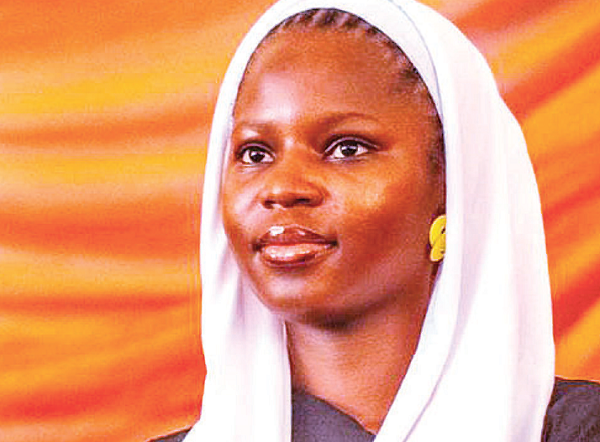A 500-Level Law student at the University of Ilorin(UNILORIN) is neck-deep in entrepreneurship, employing fellow students, empowering women and rewriting the narrative for young Nigerians in a country where unemployment remains one of the harshest realities to contend with. MUTALIB JIBRIL (UDUS) reports.
In her early 20s, Mohammad Nimatallahi Kpayero, a 500-Level Law student at the University of Ilorin (UNILORIN) has taken an age-long trade from Baruten Local Government and transformed it into a thriving business that employs students, empowers women, and is catching the attention of customers globally.
For Nimatallahi, entrepreneurship is not just about money. It’s about identity, culture, and rewriting the narrative for young Nigerians in a country where unemployment remains one of the harshest realities.
Heritage as a catalyst
Nimatallahi hails from Baruten Local Government in Kwara State. Growing up around women who produced shea butter in large quantities but received little recognition inspired her to start her venture.
“These women have been doing this for years, but their contributions weren’t acknowledged. I wanted to spotlight them, to turn what they do into something bigger,” she said.
With that resolve, she began processing and packaging shea butter products — from natural/raw butter to refined versions and skincare lines such as glow butter, baby butter, and hair-growth butter. That decision gave birth to her brand name, Baru Shea Butter.
Persistence pays
Like most entrepreneurs, her journey hasn’t been smooth. Moments of doubt came when sales dwindled, and the burden of academics collided with business demands.
“There were times I thought of quitting. No sales today, sales tomorrow. It was frustrating. But later I came to understand that’s part of business. I decided no matter what, I wouldn’t give up,” she said.
Balancing entrepreneurship with a demanding law curriculum has been among her toughest challenges. To overcome this, she devised a system: weekdays for lectures, weekends for deliveries. If orders are urgent during the week, she arranges dispatch riders — even at extra costs.
“Planning is everything. They say failing to plan is planning to fail. If you don’t organise yourself, school and business will overwhelm you,” she added.
Her resilience has become her hallmark. Today, she employs fellow students, proving that undergraduates can contribute to reducing Nigeria’s unemployment crisis.
Creating job opportunities, not just income
Nigeria’s youth unemployment crisis is alarming. According to the National Bureau of Statistics (NBS), for youth (aged 15-24) unemployment stood at 8.4 per cent in Q1 2024, dropping to 6.5 percent in Q2 2024.
By 2050, Africa is projected to have nearly a billion young people under 30 entering the workforce. Experts caution that without adequate opportunities, this surge could fuel social unrest and accelerate brain drain. Around the same time, higher education scholar Toyin Falola urged African universities, governments, and regulators to place greater emphasis on job creation and entrepreneurship.
Instead of adding her voice to the chorus of complaints, Nimatallahi decided to act. Her shea butter venture does more than provide income — it creates jobs. She has employed 5 staff, students, and hopes to expand in the future.
“Most youths are just complaining. But I told myself: I must contribute solutions. If I can employ 5 now, I hope to employ 1000 people in the future through my shea butter company,” she said.
One of her staff, Mohammed G. Mohammed, who’s also a student, said: “If not for this job, I don’t know how I’d cope financially. I don’t disturb my parents for basic needs again.”
Charity Amodochi , another staff member, said: “Working with Baru shea butter has been instrumental. I have been able to sort out my little bills by myself while in school and I also buy some things for my personal needs without any hassles.”
Recognition and validation
Her work hasn’t gone unnoticed. At an event on campus, a provost from another institution, invited as guest speaker, highlighted Nimatallahi’s shea butter business as a model for students nationwide.
“I felt on top of the world. My name was displayed on the screen as he was making a presentation. It was overwhelming,” she said.
The feedback from customers has also been her greatest motivation. Reviews from within and outside Nigeria affirm the quality of her shea butter skincare products.
“When a customer texts me saying my butter worked for their skin or their baby, I jubilate. That’s my affirmation,” she added.
Between Law and entrepreneurship
As a law student, one might expect her to dream of practising law. But for Nimatallahi, she doesn’t really find joy in lawyering.
“I don’t really find joy in lawyering. I enjoy entrepreneurship — the struggles, the sleepless nights, the joy of creating jobs. Maybe one day I’ll juggle both, but for now, shea butter is my passion,” she said.
Expert insight: balancing business and academics
In an interview with a lecturer of Clinical Pharmacy at Usmanu Danfodio University Sokoto(UDUS), Dr Ibrahim Abayomi Ogunyinka, he noted that combining entrepreneurship with academics is admirable, but often overwhelming for undergraduates.
“Juggling the two is encouraging, but it’s also overwhelming for students. It’s even harder for students who aren’t good at multitasking,” he said.
His advice for students who aspire to do both is simple but crucial
“As an undergraduate, know yourself. If you can’t multitask perfectly, one of the two will suffer — either your academics or your business, because there aren’t well-structured programmes for entrepreneurship,” said.
He added that early entrepreneurial ventures are important in tackling unemployment, but government support is crucial.
“It’ll be better, easier and more effective if the government infuses well-structured programmes for students with an entrepreneurial eye. The students will thrive exceptionally,” he said.

